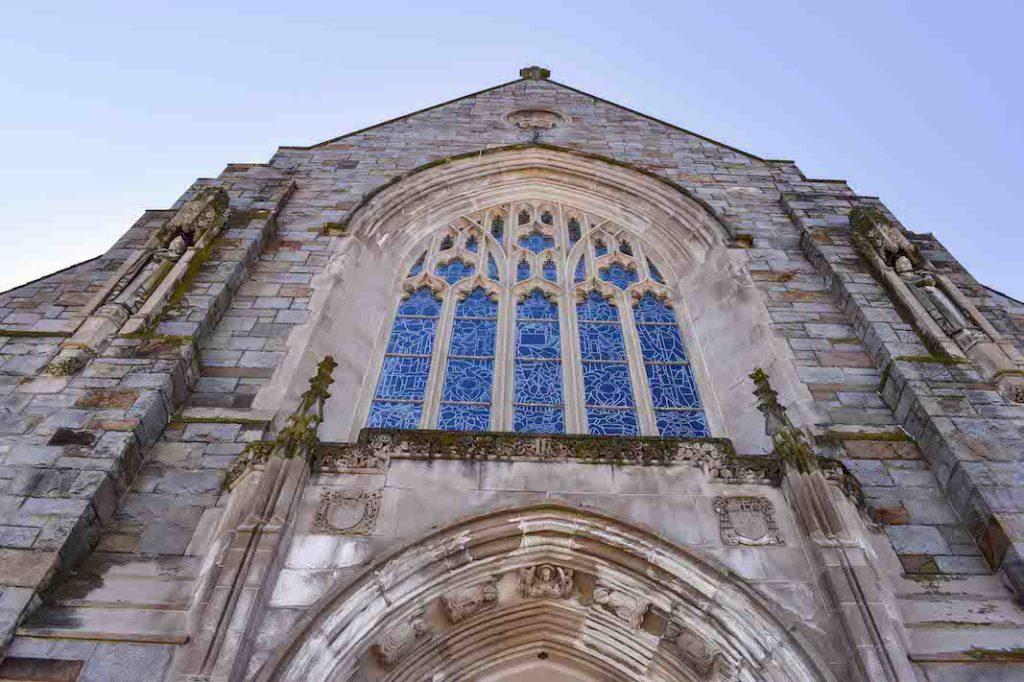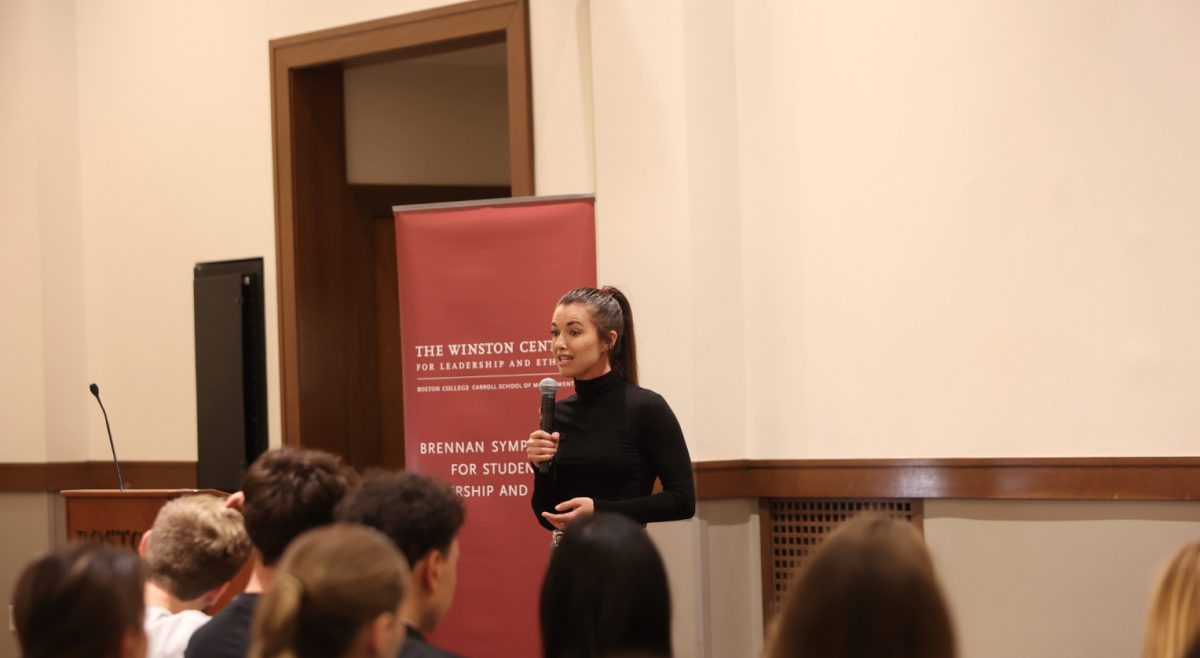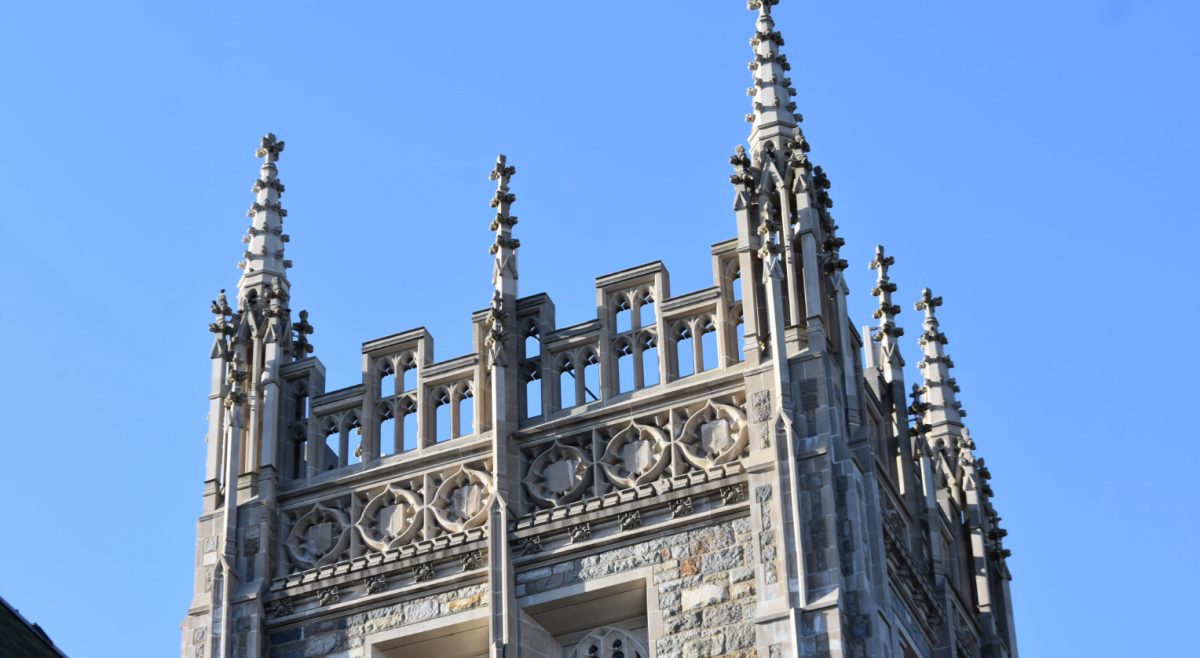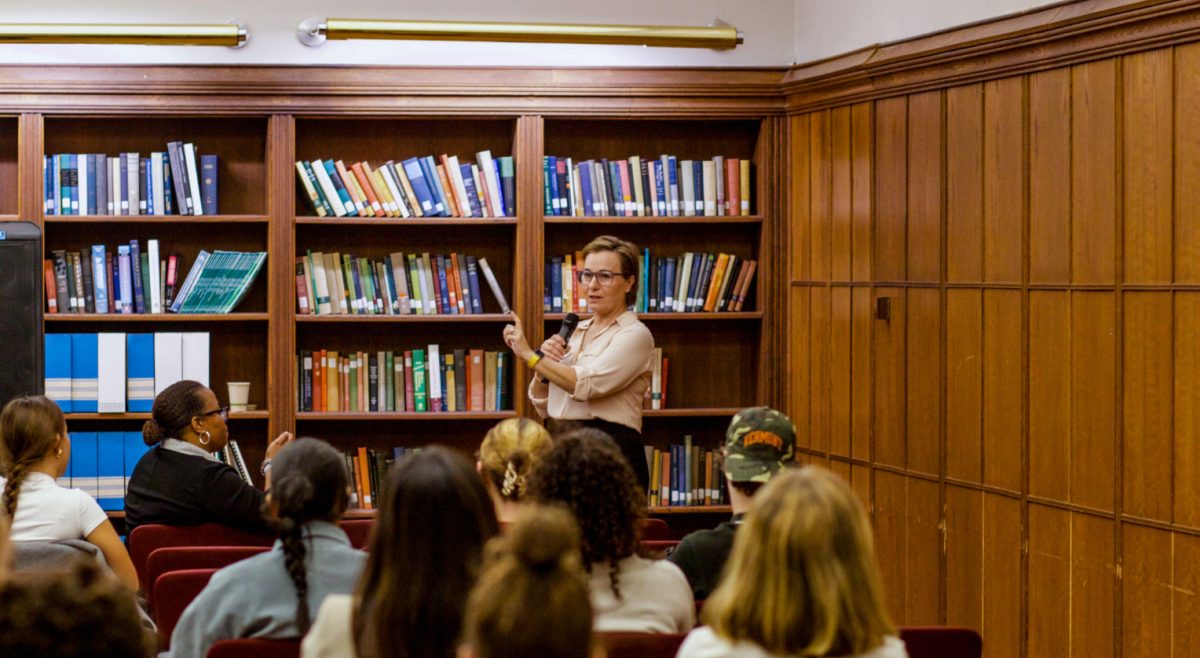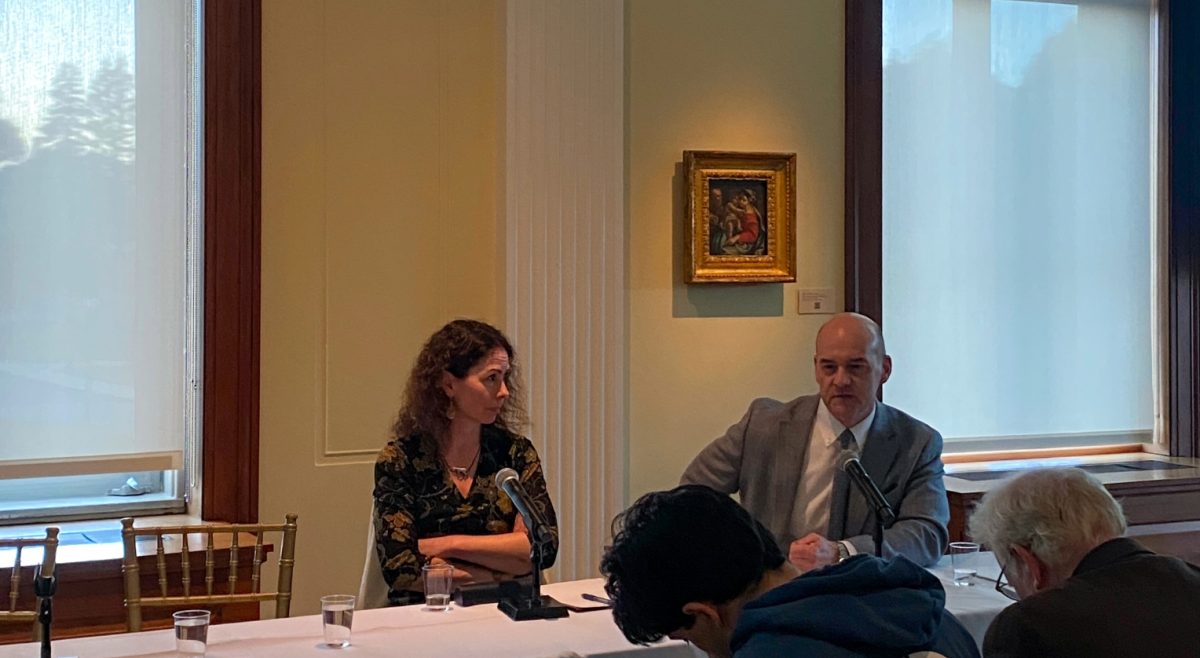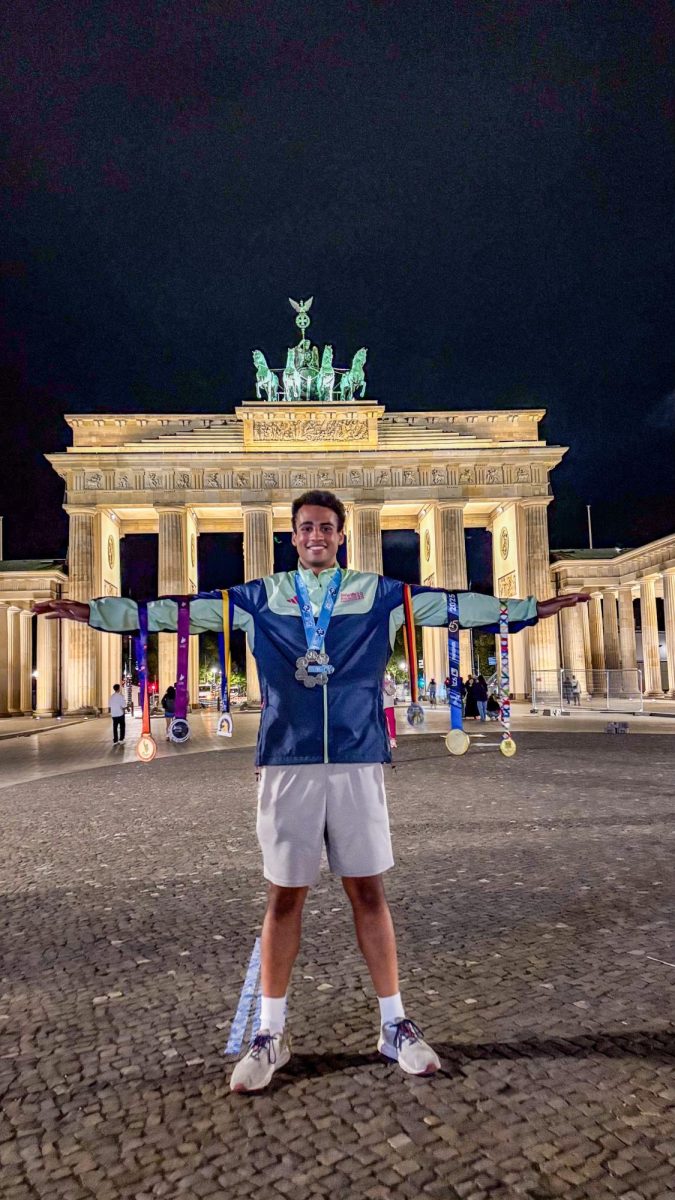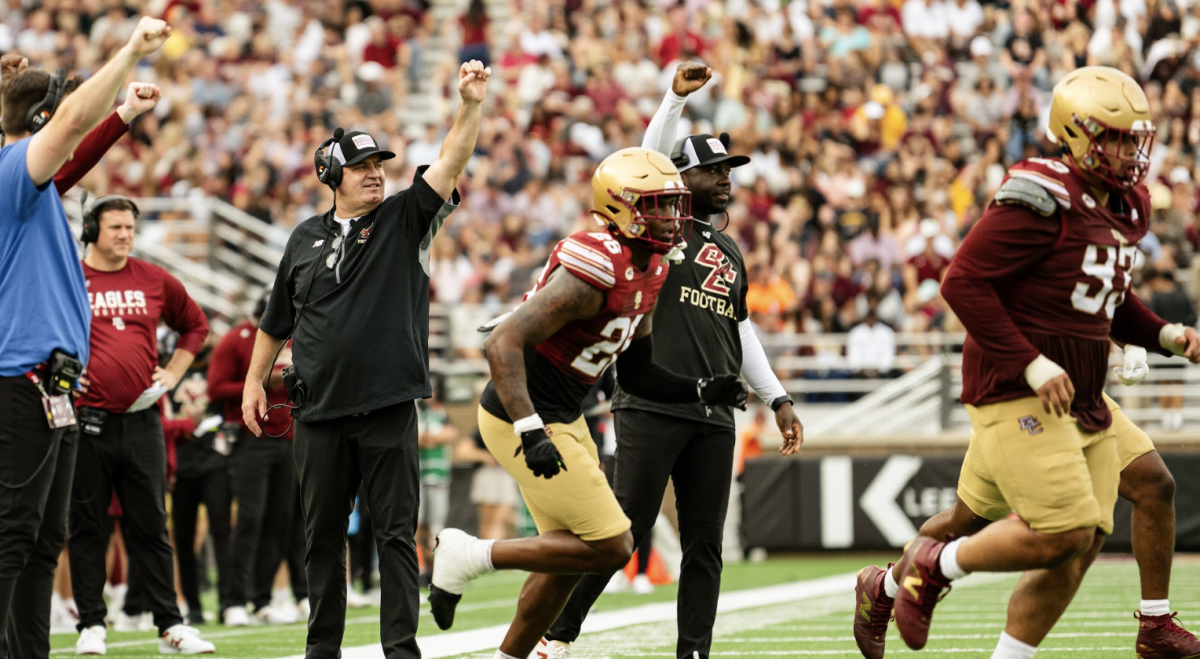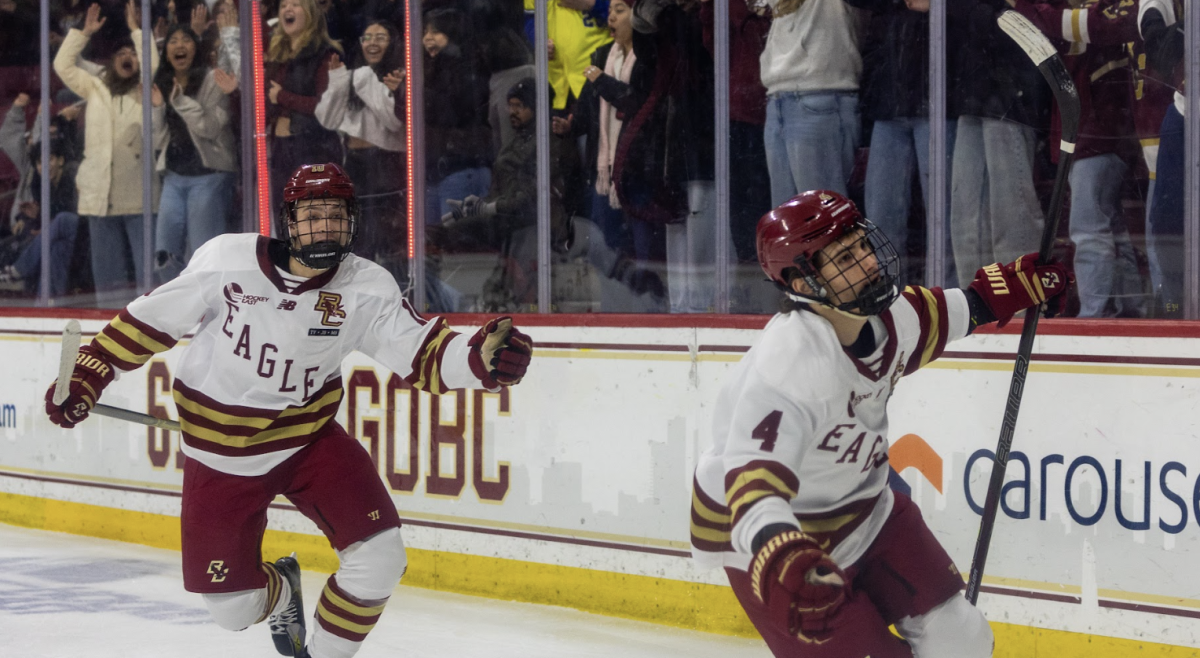Undergraduate Government of Boston College leaders are undergoing conversations with the University administration about ways BC can better support its students who identify as part of the LGBTQ+ community. While conversations are ongoing, BC has no plans to establish an LGBTQ+ resource center in the near future, according to Vice President for Student Affairs Joy Moore and Director of Student Outreach and Support Caroline Davis.
Christian Guma, UGBC president and CSOM ’21, and Kevork Atinizian, UGBC vice president and CSOM ’22, campaigned on establishing an LGBTQ+ resource center, saying they would draft a “concrete plan of action” for a center and the University would have no choice but to agree with the plan. Since then, the COVID-19 pandemic uprooted campus life, and Guma and Atinizian were forced to alter their plans.
Guma and Atinizian have held two virtual meetings with Moore and one with Davis since being sworn in in late April, with the goal of first establishing a dedicated space for LGBTQ+ students and then working toward a full center. Guma said he believes the administration is negotiating in good faith, but Moore told The Heights in an email that a center for LGBTQ+ students is “not a current university priority.”
Moore added, though, that the recent establishment of Student Outreach and Support Services (SOSS) as a separate office from the Dean of Students Office has resulted in a new space for students served by SOSS, including LGBTQ+ students. In an interview over Google Hangouts, Davis said she hopes that the space, which contains a “cozy waiting room” with rainbow couch pillows, will become a place where LGBTQ+ students feel they can come freely.
“Although not a LGBTQ center, we hope the space becomes a place where we do some of our LGBTQ programs and where all students served by SOSS office will feel comfortable hanging out,” Moore said in the email.
Moore acknowledged that LGBTQ+ students do have a lot of concerns on campus and said that Davis and SOSS are working to offer resources that both meet their needs and proclaim “that LGBTQ students are welcome wholly at Boston College.”
“The Student Experience Survey completed in 2018 showed that LGBTQ students indicated that their biggest issues [and] concerns were loneliness, isolation, unfair treatment and feeling unsafe,” Moore said. “LGBTQ students have expressed that they are unsure if they are welcome or safe being out on campus and they struggle to find other LGBTQ students and LGBTQ community.”
Moore cited a variety of different resources for LGBTQ+ students on campus, such as Pride Peers, a peer mentoring program; weekly discussion groups and community building opportunities; Spectrum, the annual retreat for LGBTQ+ students; and an LGBTQ+ Resource Guide and optional trainings for staff, faculty, and student leaders provided by SOSS.
Davis, who works extensively with LGBTQ+-identifying students, said she would support a University decision to build an LGBTQ+ resource center but, because the University does not seem willing to establish a center, feels her energy could be better used supporting LGBTQ+ students in other ways that might accomplish some of the goals of a center.
Davis said that the biggest area SOSS is lacking in its ability to support LGBTQ+ students is a lack of dedicated staff—Davis is currently the only full-time staff member working to support LGBTQ+ students. The other branches of SOSS, Disability Services and Case Management, which works with students in crisis, both have dedicated full-time staff working solely in these areas.
“I don’t have enough hours in the day to do the work that needs to be done, really doing this work well on campus,” Davis said. “There’s just more programming, more relationship building, more collaborations that we could be doing with other offices. But LGBTQ things are really only supposed to take up a small fraction of my job, and in order to do this work well, it would be useful to have someone whose sole focus is to [work with LGBTQ+ students].”
Students have long called for the University to establish an LGBTQ+ resource center on campus, but BC has continually resisted these demands—citing various reasons, such as that it supports LGBTQ+ students in other ways and that a center would not be a “panacea.”
Describing how BC’s Jesuit Catholic identity affects its stance on LGBTQ+ issues, Associate Vice President for University Communications Jack Dunn said in a 2016 article that BC “is still obligated to uphold tenets of its faith,” even if it seems unpopular or out of touch.
Similar to this line of reasoning, in 2018, BC rejected a non-binding student referendum calling for BC to allow a student organization to distribute contraceptives on campus, citing the University’s Jesuit Catholic values. The referendum had overwhelmingly passed with 94 percent of the student vote.
But BC’s faith also plays a role in the way the University does choose to support its LGBTQ+ students, according to Moore.
“The work that we do is because of our dedication to cura personalis, so we (as an institution) work to care about students as whole people, which includes understanding that students’ sexual orientation and gender identity need to be understood as part of caring for the whole person,” Moore said.
Additionally, Davis said she has heard University President Rev. William P. Leahy, S.J., say that “all campus spaces should be safe spaces for LGBT students.”
“Part of what a center could do is some real work on culture change in a way that we currently can’t.”
BC doesn’t always base its policies on its faith, though. Last month, BC rejected the Vatican’s call for Catholics to divest from fossil fuels and other industries and companies harmful to humans and the environment, saying that BC’s “decisions regarding investments and governance are made by University leadership, in concert with the Board of Trustees.”
Moore did not deny that BC’s stance on an LGBTQ+ resource center and LGBTQ+ issues in general is a financial decision as well—when The Heights asked if BC bases its LGBTQ+ policies on how they might affect donations to the University, Moore replied only that “Boston College is grateful for all donations made to the University.”
Davis said that while she does not focus on advocating for a center, she believes a center could do real work with cultural change on campus, and that the University’s opposition to establishing a center may play a role in permitting homophobia and transphobia on campus.
“Part of what a center could do is some real work on culture change in a way that we currently can’t,” Davis told The Heights. “Because hypothetically a center might have student staff or a way to interact differently with the campus community than we currently do with our resources. … But most culture change comes from students leading other students.”
In this vein, Davis noted her appreciation for Guma and Atinizian taking initiative in meeting with her and Angelique Bradford, graduate assistant for LGBTQ+ Student Outreach and Support, about ways to expand and promote resources for LGBTQ+ students. Davis said she has never met with the UGBC president and vice president in this manner.
“Boston College is grateful for all donations made to the University.”
When asked how the administration’s stance on LGBTQ+ issues might play a role in both permitting and countering homophobia and transphobia on campus, Moore said that all members of the BC community, including administrators, are responsible for calling out discrimination on campus. Moore also echoed Davis’ position that students must play a role in cultural change at BC.
“The Administration and all members of the BC community are responsible for calling out and stopping any homophobic and transphobic behavior that may be in the student culture,” Moore said. “Students have to continue to be allies who are dedicated to working on culture change and education.”
Featured Image by Maddy Romance / Heights Editor

